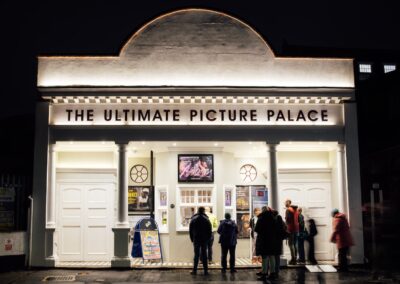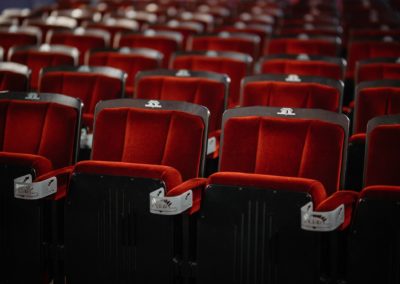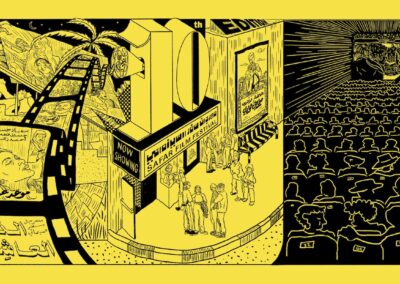Regular readers will know that I took umbrage when the most recent BFI list of the greatest films proclaimed that Chantal Akerman’s Jeanne Dielman, 23 quai du Commerce was now “officially” the “best film” of all time. Obviously there is no such thing as the best film ever made and all film lovers know that it is also impossible to choose your favourite film, either. I could give you a list of 40 or 50, sure. But narrow it down to one? No way.
For me, again, as regular readers will know, a love of film is synonymous with a love of cinema. Movies were designed to be seen on a big screen, in the dark, with other people. Going to the cinema is an event you remember – pressing “play” on your laptop just doesn’t quite cut the mustard. So, for me I don’t ever really feel I “know” a film (even if I’ve watched it dozens of times in the classroom) until I have tracked it down at a cinema like the Ultimate Picture Palace and enjoyed it as it was intended to be seen: writ large, “up there.” Therefore, if you get the chance to see a movie as great as Vertigo at the cinema (this was top of the BFI list before Dielman came along) then you should seize the opportunity and that is what I am recommending you do with all of the Jimmy Stewart/Hitchcock collaborations which are showing over the coming weeks.
And if you can only see one – make it Vertigo.
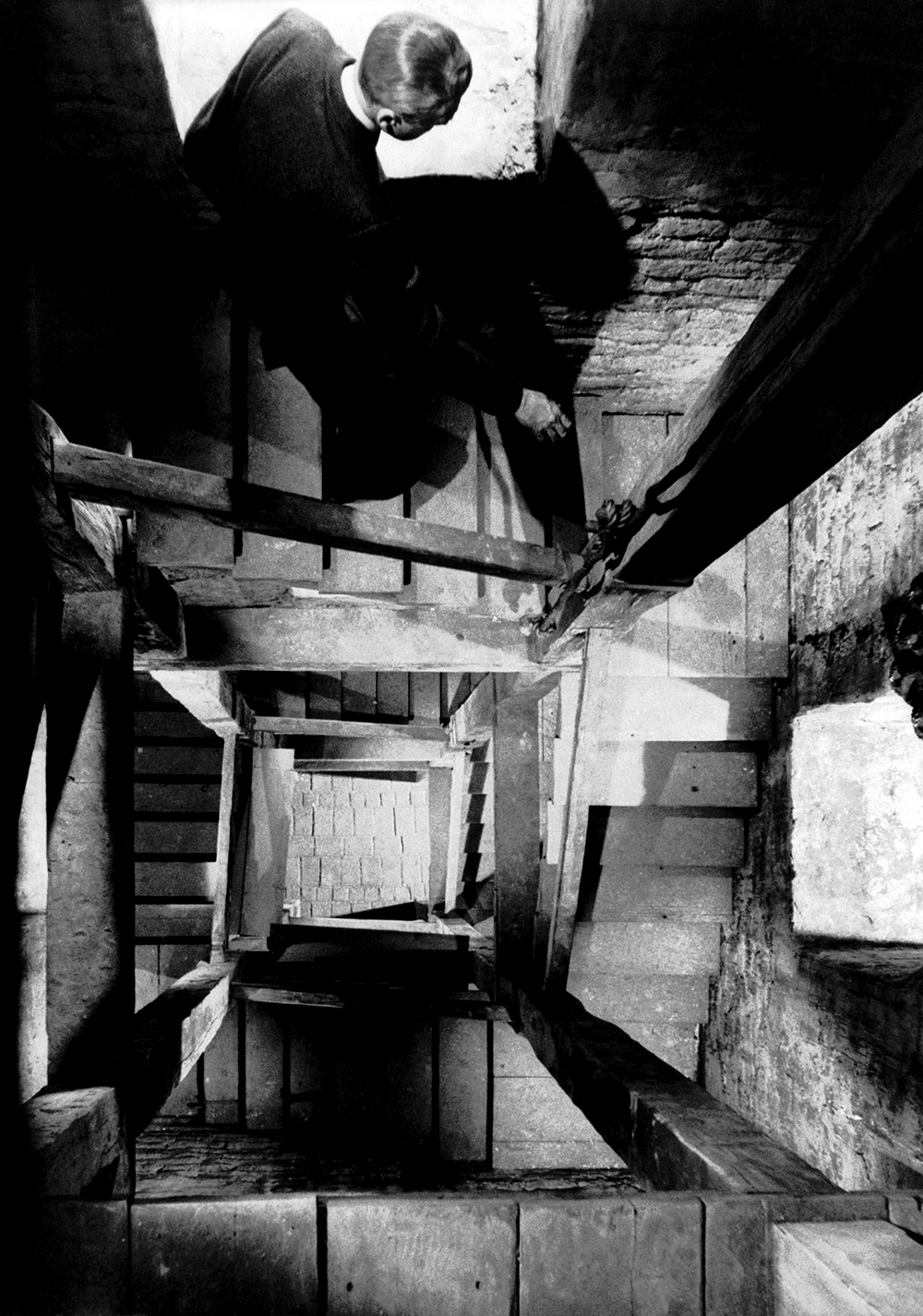
Actually, this isn’t my favourite film by Hitch (that would be Marnie or Notorious or North by Northwest) but it is an undisputed work of genius. Considered to be his “most personal film” and a big flop when it was first released in 1958; over the years Vertigo has continued to mature and withstand the passing of time. Exactly as it should be. The basic premise is sometimes explained by candidates in Film examinations as “an elderly male pervert stalks a woman at least half his age and reveals his toxicity.” So now you know.
On one level, that’s sort of right. Hitch was certainly a voyeur, delighting in the ice cold blondes he showed us over and over again in his films. He was also a male director who revelled in making films about flawed men and their weaknesses (something he, presumably knew much about) and sex. In Vertigo, a retired cop with a fear of heights played with brilliant intensity by the everyman actor James Stewart (who also, lest we forget, did similarly “against type” work for Anthony Mann in a number of great westerns in the same decade) falls in love with an enigmatic woman (Kim Novak) and becomes embroiled in a complex scam when she appears to commit suicide at roughly the mid-way point. If you’ve not seen it, I’ll leave it there as there are several strong plot twists along the way and I wouldn’t want to spoil them for you.
Hitchcock had been working in film since the silent days and was a believer in what might be called “pure cinema.” In other words, whilst the plot of Vertigo has a lot going for it and both Stewart and Novak (and Barbara Bel Geddes in a brilliantly judged “good girl” supporting role) are superb; it’s those moments when you simply lose yourself in the film’s dreamy atmosphere that make it such a memorable experience.
Although he is known as one of the great auteur directors, one of Hitchcock’s finest qualities was his ability to collaborate. Here, for example, graphic designer Saul Bass is on hand to provide stunning credit and dream sequences; cinematographer Robert Burks pushes the boundaries of what you can do with the camera with those famous track and zoom shots; George Tomasini cuts the whole thing together with his usual great precision; composer Bernard Herrmann writes what may well be his most swoonsome Romantic soundtrack ever and Edith Head designs some of the most beautiful gowns ever to be worn on screen.
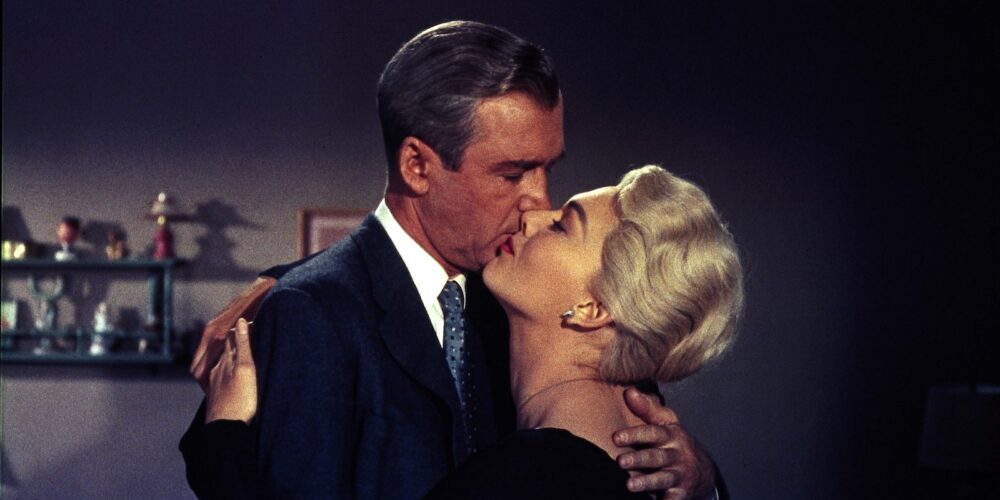
What you’ll also not be able to shake is the genuinely haunting nature of the whole thing; the way the camera glides as it follows a silent Stewart as he prowls around San Francisco watching Kim Novak go about her increasingly enigmatic and puzzling day-to-day activities; how there is so much more going on than meets the eye; how the sight of a naked shoulder beneath a bedcover can be one of the most erotic things you have ever seen; how that lurid green washes over so much of it like a fog; how past and present combine; how male impotency is only overcome when the man gets what he wants and, in the end, how damned tragic it all is.
For this really is a tragedy and Vertigo’s final shot remains one of cinema’s most profound representations of loss.
There is no denying that cinema is one of our greatest art forms and what I will most enjoy about catching up with the film, yet again, is the fact that, no doubt, I will see more in it than I did last time I saw it. It’s one of those great films (like Welles’ Citizen Kane, another of the BFI’s past “Number Ones”) which improves every time you watch it. As you get older and (maybe) wiser, the film takes on a different resonance. A different shape. A more subtle nuance.
It’s a fluid and haunting experience. Pure cinema, indeed.
Dr Andrew C Webber is a Film teacher and examiner with over 37 years’ experience. He currently contributes to both the Cinema of the 70s and 80s magazines (available on Amazon); cassette gazette fanzine (available from cassette pirate on e-bay) and the Low Noise music podcast available on Spotify and Apple podcasts.
